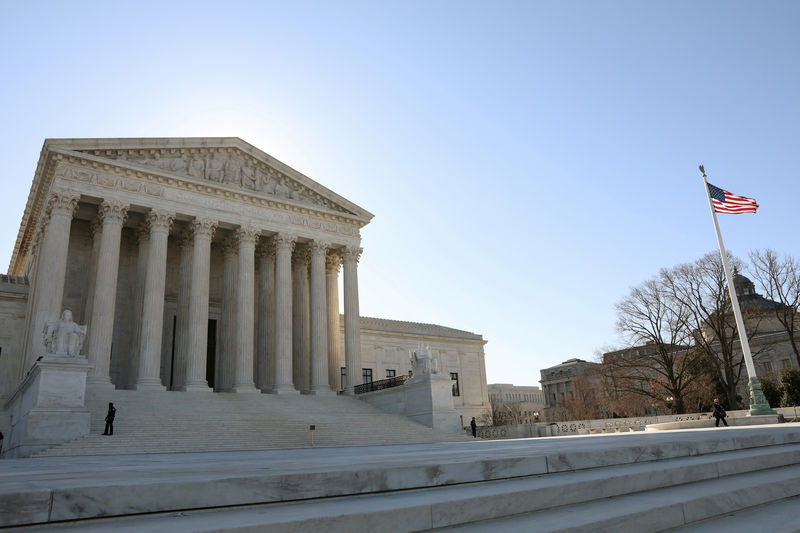By Lawrence Hurley
WASHINGTON (Reuters) - The U.S. Supreme Court on Friday sidestepped a major new challenge to abortion rights by declining to hear Alabama's bid to revive a Republican-backed state law that would have effectively banned the procedure after 15 weeks of pregnancy.
The justices left in place a lower court ruling that struck down the 2016 law, which would have criminalized a method called dilation and evacuation that is the most common type of abortion performed during the second trimester of a pregnancy.
The law in question is different than an even more strict Alabama measure signed by Republican Governor Kay Ivey in May. The new law, also facing a legal challenge, would ban nearly all abortions in the state, even in cases of rape and incest.
Conservative Justice Clarence Thomas wrote an opinion agreeing with the court's decision not to hear the issue now but making clear that he would vote to uphold such laws.
"The notion that anything in the Constitution prevents states from passing laws prohibiting the dismembering of a living child is implausible," Thomas wrote.
The Alabama law was one of a growing number passed by Republican legislators at the state level imposing a variety of restrictions on abortion.
"While we are pleased to see the end of this particular case, we know that it is nowhere near the end of efforts to undermine access to abortion," said Andrew Beck, a lawyer with the American Civil Liberties Union, which challenged the law.
"Politicians are lining up to do just what Alabama did - ask the courts to review laws that push abortion out of reach and harm women's health, with the hope of the getting the Supreme Court to undermine, or even overturn, a woman’s right to abortion," Beck added.
The lower court found that Alabama's law was an infringement on a woman's constitutional right to abortion recognized in the landmark 1973 Roe v. Wade ruling. A ruling by the conservative-majority Supreme Court upholding the Alabama measure could have chipped away at the Roe decision, which legalized abortion nationwide.
In the method targeted in the Alabama law, sometimes called D&E, a woman's cervix is dilated and the contents of the uterus removed. Alabama calls this method "dismemberment abortion."
Anti-abortion proponents had hoped the case would present an opportunity to make inroads at the Supreme Court following the retirement last year of Justice Anthony Kennedy, who was pivotal in defending abortion rights. President Donald Trump, who vowed before the 2016 election to appoint justices who would overturn the Roe ruling, named conservative Justice Brett Kavanaugh to replace Kennedy.
The Supreme Court has a 5-4 conservative majority but has sent mixed messages on abortion in recent months.
Most recently, the court on May 28 refused to consider reinstating Indiana's ban on abortions performed because of fetal disability or the sex or race of the fetus while upholding the state's requirement that fetal remains be buried or cremated after the procedure is done.
In February, the court blocked a Louisiana law imposing strict regulations on abortion clinics from going into effect. An appeal is pending in that case.
The Supreme Court on Dec. 10 declined to take up another abortion-related case when it rebuffed two other conservative-leaning states - Louisiana and Kansas - that moved to deny public funding to Planned Parenthood.
Anti-abortion activists hope the high court will be more receptive to abortion restrictions following Kennedy's departure. Many liberals have expressed concern that Kavanaugh, who joined the court in October, will be more hostile to abortion rights and could support the overturning of Roe.
The Supreme Court in 2016 on buttressed constitutional protections for abortion rights in a ruling in which Kennedy joined the four liberal justices, throwing out a Texas law imposing difficult-to-meet requirements on abortion clinics and abortion doctors.

With Kennedy gone, conservative states are debating and in some cases enacting laws that are in direct conflict with the Roe v. Wade precedent.